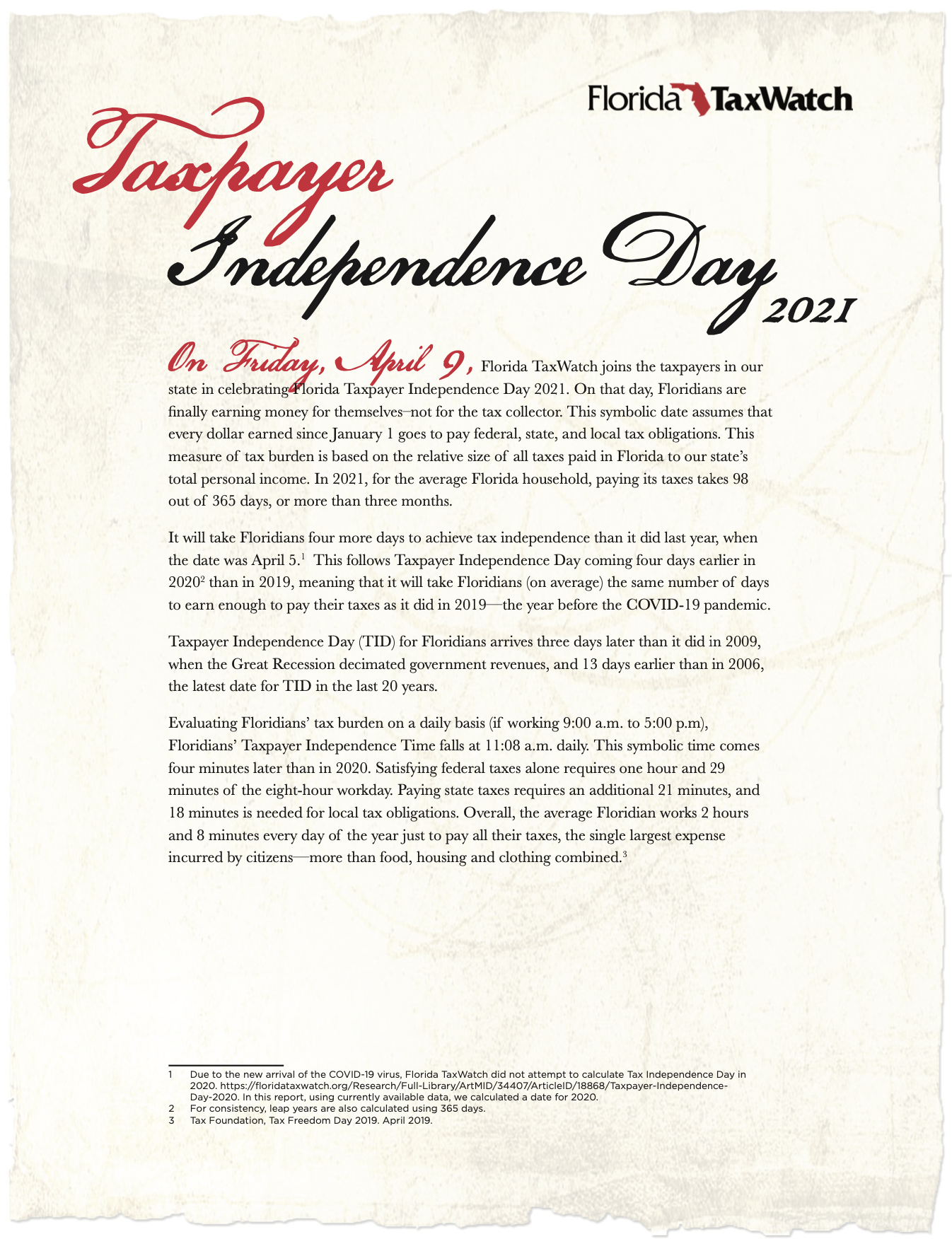Taxpayer Independence Day

On Friday, April 9, Florida TaxWatch joins the taxpayers in our state in celebrating Florida Taxpayer Independence Day 2021. On that day, Floridians are finally earning money for themselves–not for the tax collector. This symbolic date assumes that every dollar earned since January 1 goes to pay federal, state, and local tax obligations. This measure of tax burden is based on the relative size of all taxes paid in Florida to our state’s total personal income. In 2021, for the average Florida household, paying its taxes takes 98 out of 365 days, or more than three months.
Facts About Florida’s Tax Burden
- Floridians’ tax burden (federal, state and local) totals $323 billion, 26.6 percent of personal income or 32.0 percent of the state’s gross domestic product (GDP).
- Federal taxes make up 70 percent of Floridian’s total burden, state taxes account for 16 percent, and local taxes make up 14 percent.
- For the average Florida household, earning enough to pay its taxes takes more than three months. Looking at it another way, you have to work approximately 2 hours and 8 minutes of each 8-hour workday to earn enough to pay taxes.
- Taxes are a family’s single largest expense—more than food, housing and clothing combined.
- Florida’s tax burden is smaller than the average American, so Taxpayer Independence Day comes earlier in Florida than it does nationally.
- Florida’s state government tax burden is one of the lowest in the nation, while the local government burden is much closer to the national average.
- If the more than $3.5 trillion federal deficit for 2021—which represents future taxes— were included, Taxpayer Independence Day would come more than two months later.
As the growth in taxes outpaces personal income growth, Florida TaxWatch projects that the average Florida household will see a 1.2 percent decrease in its effective buying power (EBP) during calendar year 2021. After paying all taxes and adjusting for inflation, the average Florida household will have $1,215 less to spend in 2021 than it had in 2020. This is only the first annual decrease since 2012. Despite the 2021 decrease, EBP is still up over the last ten years. Rising in eight of the ten years, EBP is now more than $10,000 (13.6 percent) greater than in 2011.